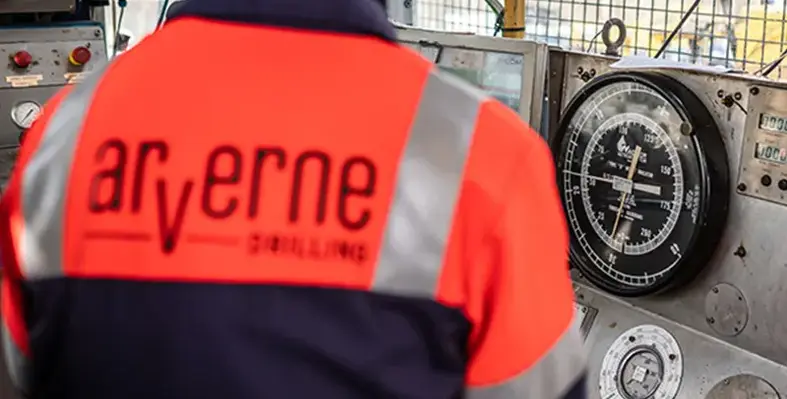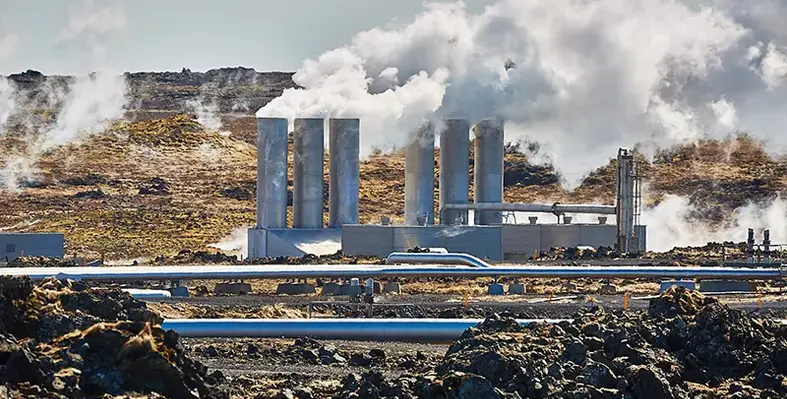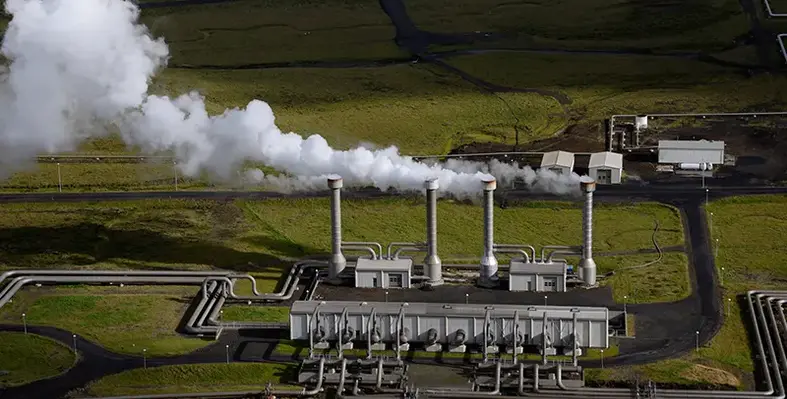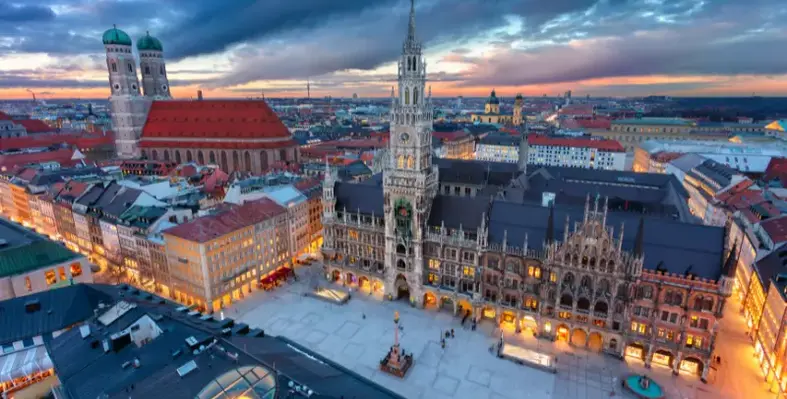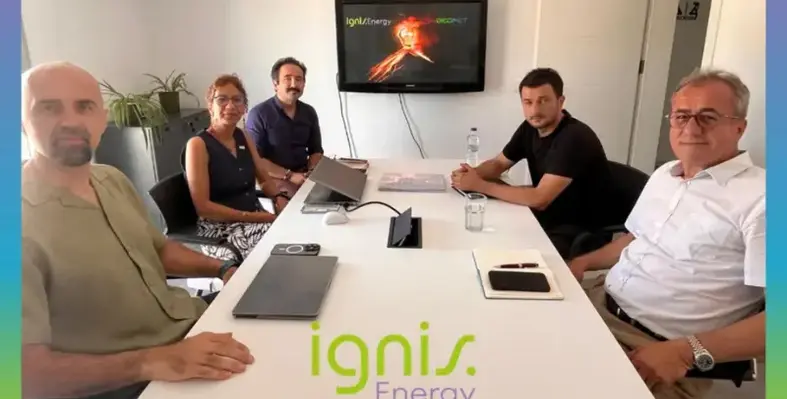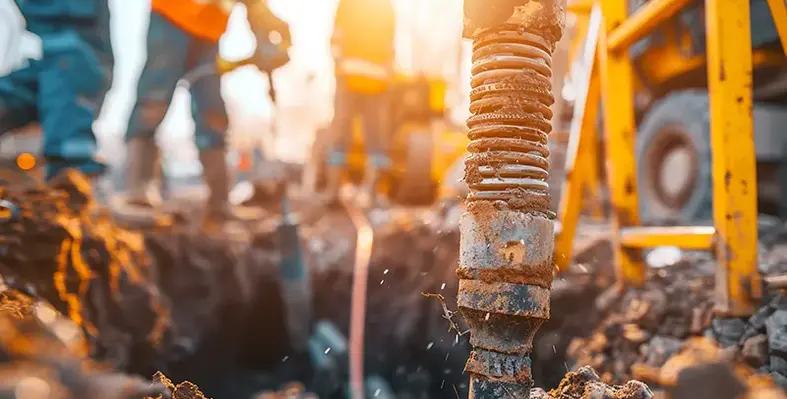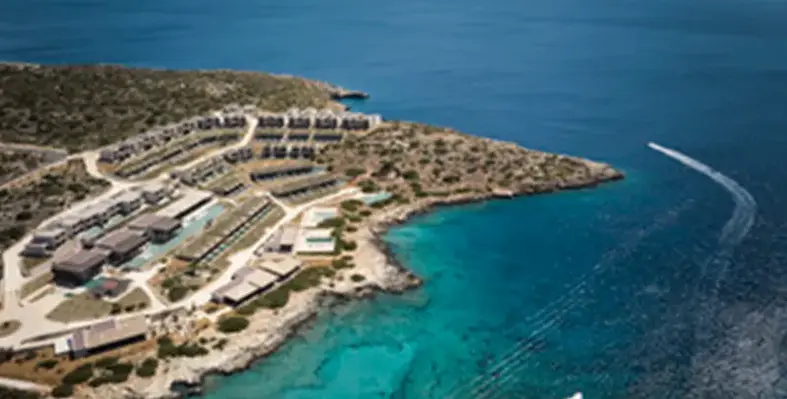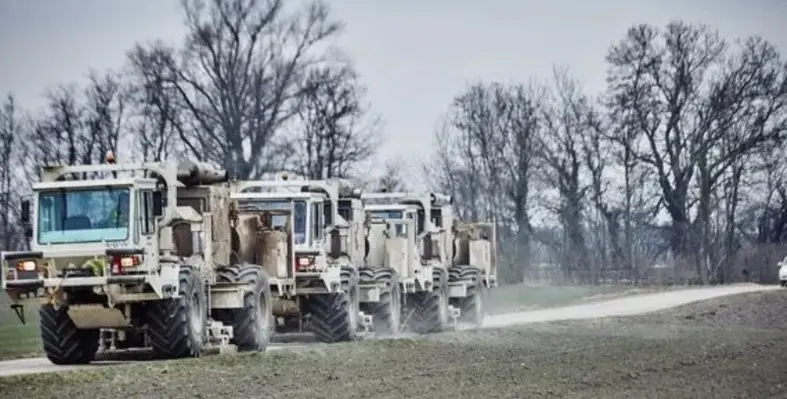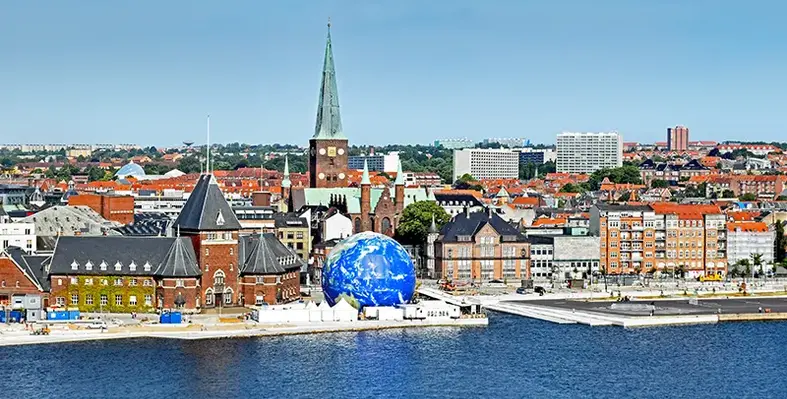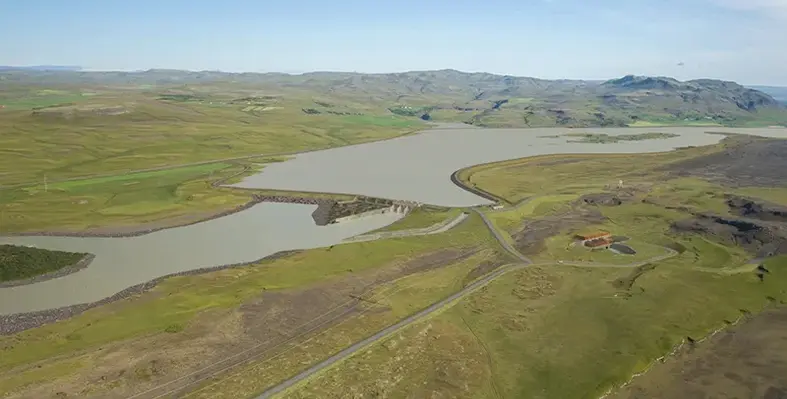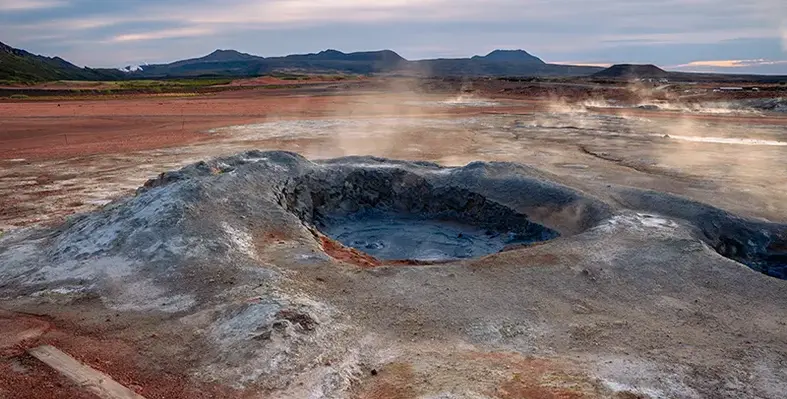Europe
Europe
- Region: Europe
- Topics: Geothermal
- Date: 23 July, 2025
Arverne Group has received a €396,585 grant from the Nouvelle-Aquitaine Region, with support from the European Social Fund, to enhance geothermal drilling training.
- Region: Europe
- Topics: Geothermal
- Date: 22 July, 2025
Exergy International, a specialist in advanced geothermal binary power plants, has secured a €24.5 million contract from EDA Renováveis (EDAR) for the upgrade of the Ribeira Grande geothermal plant located on the island of São Miguel in the Azores.
- Region: Europe
- Topics: Geothermal
- Date: 11th July 2025
The European Geothermal Energy Council (EGEC) expects to see “a significant upturn” in business activity linked to geothermal energy projects throughout Europe, according to new findings in its latest market report.
The new edition of EGEC’s annual Geothermal Market Report said a combined 40MW of new capacity had come on stream during 2024. It identified three new geothermal power plants — one in Austria and two in Turkey — had come on stream, adding a combined 40 MW of baseload capacity.
By the end of 2024, a total of 147 geothermal electricity plants were in operation across Europe, and plans for around 50 additional geothermal power plants are in various stages of development.
But EGEC expects to see an “exponential increase” in the number of wells to be drilled during 2025. This is due to the high number of geothermal energy projects that are currently in development across Europe – including around 50 power plants and more than 500 district heating and cooling (DHC) projects – as well as continued growth in the number of exploration campaigns being launched.
“The last few years have not been easy for the geothermal sector, with unstable energy prices and high interest rates deterring investors,” said Miklos Antics, EGEC’s President. “But now we are starting to see signs of revival, notably in terms of new drilling activities linked to geothermal energy projects, including new power plants as well as heating and cooling plants.”
According to the report, the last two years have seen steady growth in the number and extent of exploration activities being undertaken in Europe. In 2024, a record of more than 17 surveys were conducted, compared to only 10 in 2023. At least 10 3D seismic campaigns were started in the first half of 2025, with multiple surveys announced for later in the year to continue this growth.
The geothermal DHC sector also experienced steady growth, it noted, with 10 new systems launched — three in Poland, two in the UK, and one each in France, Greece, Romania, Spain, and the Netherlands. This brought the total number of operational GeoDHC systems in Europe to 412, with plans for around 500 additional projects under development.
However, geothermal heat pumps (HP) saw a significant drop in sales in 2024 across all European countries except Switzerland, attributed to a lack of favourable regulations and policies.
However, EGEC said that it is hopeful the upcoming European Geothermal Action Plan will contribute to creating more favourable conditions for the growth of the geothermal HP market. “We are optimistic that geothermal energy will finally be recognised as a cornerstone of a sustainable, resilient and carbon-neutral energy future for Europe,” added Antics.
EGEC’s Secretary-General, Philippe Dumas, highlighted the significance of the European Geothermal Action Plan, which is due to be launched in 2026.
“We are seeing positive signs of growth in terms of exploration activities, and also in the numbers of new geothermal energy projects that are currently in development across Europe,” he said.
“However, the rate of growth will also depend on having a favourable financial, regulatory and policy framework that encourages investments in geothermal projects. Therefore, the highly anticipated European Geothermal Action Plan…will have a vital role to play, notably in terms of ensuring simpler permitting procedures for new projects.”
- Region: Europe
- Topics: Geothermal
- Date: 7 July, 2025
Stadtwerke München (SWM) and Energiewende Garching (EWG) has begun preparations for geophysical surveys in the greater Munich area, encompassing a distance of approximately 1,100km2, nine districts and over 60 municipalities.
- Region: Europe
- Topics: Geothermal
- Date: 7 July, 2025
ignis H2 Energy has signed an agreement for a 2+2 deep geothermal well drilling contract with GEOPET Drilling Services, marking a major milestone in the company’s renewable expansion into Türkiye.
- Region: Europe
- Topics: Geothermal
- Date: 26 June 2025
The Croatian Hydrocarbon Agency (CHA) has confirmed geothermal energy potential in the Velika Gorica area following recent exploration work.
- Region: Europe
- Topics: Geothermal
- Date: 16 June, 2025
Arverne Group has announced the commencement of geothermal drilling activities in Schwabwiller through its subsidiary, Lithium de France
- Region: Europe
- Topics: Geothermal
- Date: 13th June 2025
Geothermal energy is becoming a buzzword in the travel industry as luxury hotels and resort companies seek to showcase their environmental and sustainability credentials to holidaymakers.
JW Marriott has just opened in Greece with the unveiling of the JW Marriott Crete Resort & Spa, which boasts geothermal-based heating systems, among other sustainability measures.
“The resort has been thoughtfully constructed with sustainability at its core,” the company said in a statement, “from geothermal and solar energy systems to heat recovery from air conditioning for hot water, and the use of treated grey water for irrigation.”
Greywater refers to household wastewater that originates from sources like showers, bathtubs, sinks and washing machines, and and can be reused for non-potable purposes.
Nestled in Marathi, near the town of Chania on the island of Crete, the resort spans over 100 acres of idyllic coastline, and is designed to harmonise with the natural beauty and rich cultural heritage of the landscape.
“This commitment to environmental responsibility has guided every aspect of the resort’s development, resulting in a destination that not only seamlessly blends with its surroundings, but is also deeply shaped by them,” JW Marriott stated.
Another of the group’s properties, Italy’s Grotta Giusti Thermal Spa Resort in Tuscany, also incorporates geothermal features and treatments as part of its spa offerings.
Around the globe, luxury hotels utilising geothermal energy can similarly be found in destinations including Switzerland, notably its plush mountainous Zermatt resort, and, of course, Iceland.
“The opening of JW Marriott Crete Resort & Spa marks a milestone moment for the brand with its entrance into Greece,” added Bruce Rohr, Vice President and Global Brand Leader, JW Marriott.
- Region: Europe
- Topics: Geothermal
- Date: 10 June, 2025
OMV has announced a major seismic survey to begin in December 2025, aiming to assess the geothermal potential of the East Styrian basin, specifically in the greater Graz region.
- Region: Europe
- Topics: Geothermal
- Date: 29th May 2025
Denmark’s Innargi has outlined progress at its Aarhus geothermal project with Kredsløb, which supplies district heating to 330,000 people in the municipality.
- Region: Europe
- Topics: Geothermal
- Date: 26 May, 2025
Global investor Legal & General (L&G) has finalised a US$50mn investment with Landsvirkjun, Iceland’s National Power Company, through L&G's Institutional Retirement business.
- Region: Europe
- Topics: Geothermal
- Date: 22 May, 2025
There exist numerous geothermal technologies exhibiting varying levels of maturity, that can operate on different ranges of temperature.

